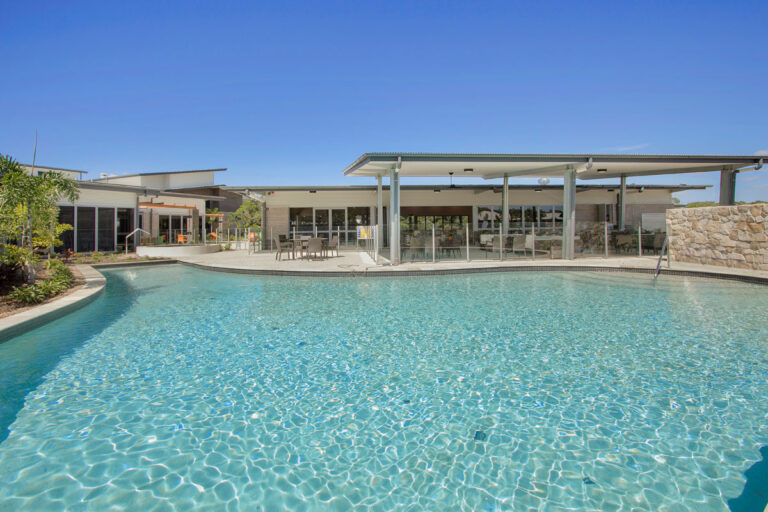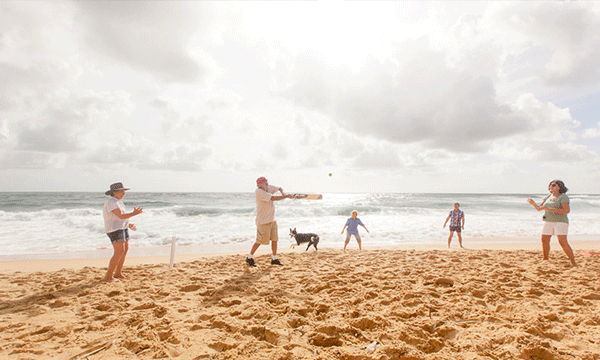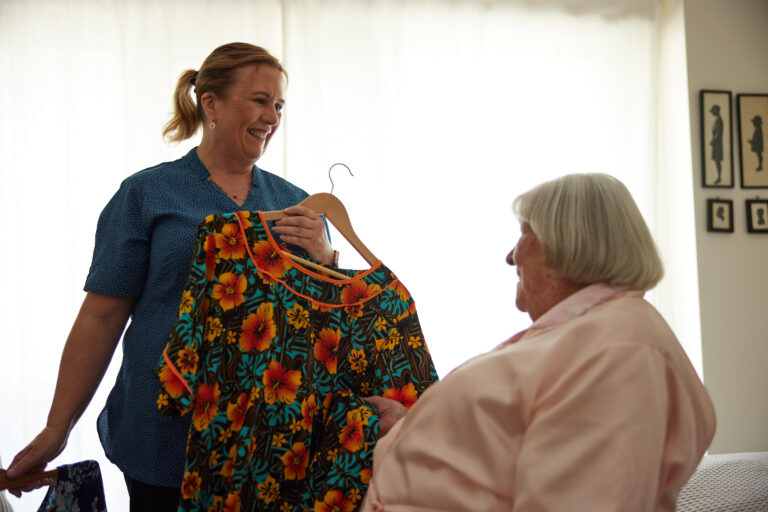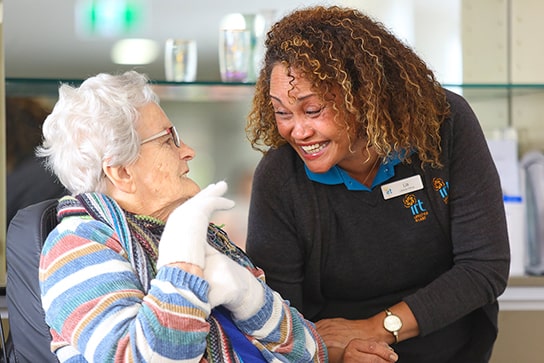Summer safety: Tips for seniors
We can’t control the weather but we can take practical steps to staying cool, safe and hydrated during summer.

Heatwaves pose serious health risks for all people, but in particular older people. In this article we explain heat stress, the signs, why seniors are more vulnerable and what steps you can take to help prevent it happening to you.
Heat is the natural hazard associated with the highest mortality in Australia, according to Dr Arnagretta Hunter, from the Australian National University.
“When heatwaves occur, the death toll routinely reaches into the hundreds. For example, the 2009 heatwave across south east Australia resulted in close to 500 deaths,” she writes in her article Hot and bothered: heat affects all of us, but older people face the highest health risks.
Citing The Medical Journal of Australia, Dr Hunter notes Australian summer temperatures have risen by 1.66°C over the past 20 years. And in the past century there’s been a significant increase in the number, intensity and duration of heatwaves during our summers.

Who's at risk?
Heatwaves pose serious health risks for all people, but in particular older people. In this article we explain heat stress, the signs and actions that need to be taken, why seniors are more vulnerable, what steps you can take to help prevent it happening to you and also share some summer safety tips for seniors.
What is heat stress?
Heat stress occurs when your body cannot cool itself enough to maintain a healthy temperature (around 37°C).
The body normally cools itself by sweating, but sometimes sweating isn’t enough and the body temperature keeps rising. Heat stress is also known as hyperthermia.
Heat-related illnesses range from mild conditions such as a rash or cramps to more serious conditions such as dehydration and potentially life-threatening conditions such as heatstroke.
When it is very hot, you may be at increased risk of heat stress.
What are the signs of heat stress?
According to NSW Ministry of Health, heat-related illness includes:
1. Dehydration
Symptoms include dizziness, tiredness, irritability, thirst, bright or dark yellow urine, loss of appetite and fainting. First aid for dehydration includes drinking plenty of water or an oral rehydration drink, moving somewhere cool, and seeking medical advice if you start to feel unwell.
2. Heat cramps
may include muscle pains and spasms. First aid for heat cramps includes stopping all activity, resting somewhere cool, drinking water or an oral rehydration solution, and seeking medical advice if there is no improvement.
3. Heat exhaustion
Symptoms include heavy sweating (cool and moist skin), pale skin, fast and weak pulse rate, breathing fast and shallow, muscle weakness or cramps, tiredness, dizziness, headache, nausea or vomiting and fainting. First aid for heat exhaustion includes resting in a cool place, cooling yourself down by removing excess clothing, having a cool bath or shower, placing cool packs under the armpits, groin or neck, and rehydrating by drinking cool water or an oral rehydration drink. If heat exhaustion is not treated, it can turn into heatstroke. Seek urgent medical attention if symptoms worsen or there is no improvement.
4. Heatstroke
Symptoms of heatstroke include a sudden rise in body temperature, red, hot and dry skin (sweating has stopped), dry swollen tongue, rapid pulse, rapid shallow breathing, intense thirst, headache, nausea or vomiting, dizziness, confusion, poor coordination or slurred speech, aggressive or bizarre behaviour, loss of consciousness, seizures or coma. Heatstroke is a life-threatening medical emergency - call triple zero (000) and ask for an ambulance.
You should always seek medical care immediately if you have, or someone you know has, the symptoms of heat-related illness. For current information go to www.health.nsw.gov.au.
Why are seniors more vulnerable to heat stress?
The US Centers for Disease Control and Prevention outlines three main reasons why older people are more likely to suffer heat stress.
- Older people do not adjust to as well as younger people to sharp changes in temperature. Elderly skin is not able to produce sweat and cool the body as efficiently as younger skin.
- Older people are more likely to have a chronic medical condition that alters normal body responses to heat. Diabetes and heart and kidney disease are particular areas of concern.
- Older people are more likely to take prescription medicines that affect the body’s ability to control its temperature or sweat.
Other risk factors
In addition, living alone can increase your risk of suffering a heat-related illness, because there’s no-one else to notice you are unwell or to take care of you.
If you are frail, have reduced mobility or cognitive decline, it may be difficult for you to take care of yourself in hot weather.
Tips to help seniors stay cool
We can’t control the weather but we can take practical steps to keep ourselves safe during a heatwave.
Here are some summer safety tips for seniors to help you stay cool and hydrated:
- Drink plenty of water and don’t wait until you’re thirsty to drink.
- You should cancel or postpone outdoor activities and stay cool, stay hydrated and stay informed.
- If your doctor limits the amount of fluids you drink or has you on fluid pills, ask them how much you should drink during hot weather.
- Don’t use the stove or oven to cook – it will make you and your house hotter.
- Dress appropriately – wear loose fitting, lightweight, light-coloured clothing.
- Take cool showers or baths to cool down.
- Do not engage in very strenuous activities and get plenty of rest.
- Check on a friend or neighbour and have someone do the same for you.
Check for weather warnings
It’s important to stay informed, so check the Bureau of Meteorology for warnings about hot weather and the local news for heatwave-related updates.
Experts urge everyone, but particularly the elderly, to take steps to prevent heat stress on days when the temperature is predicted to rise above 30°C. Temperatures above 37°C are particularly dangerous. Take note of humidity levels too, because sweating is not as effective at cooling you down when the weather is very humid.
For more information
You can check out the Australian Government’s healthdirect website for more information on how to prevent heat-related illness.
If you or someone you know is unwell with a heat-related illness, contact your doctor or go to the nearest hospital. If symptoms are serious call triple zero (000) for an ambulance.

Want to keep doing the things
you love?
Find out more about IRT Home Care and how we can assist you or your loved one to keep living independently at home. IRT has been providing home care services for more than 30 years, offering support to seniors in NSW, Qld and the ACT.
Find out moreYou may also like
Choosing an Aged Care Centre: What to consider
Moving from your home into a residential aged care centre can be a rewarding experience for you or your loved one.
Your guide to moving into a retirement village
When the decision to move into a retirement village has been made, the thought of packing up your old home and moving in to your…


